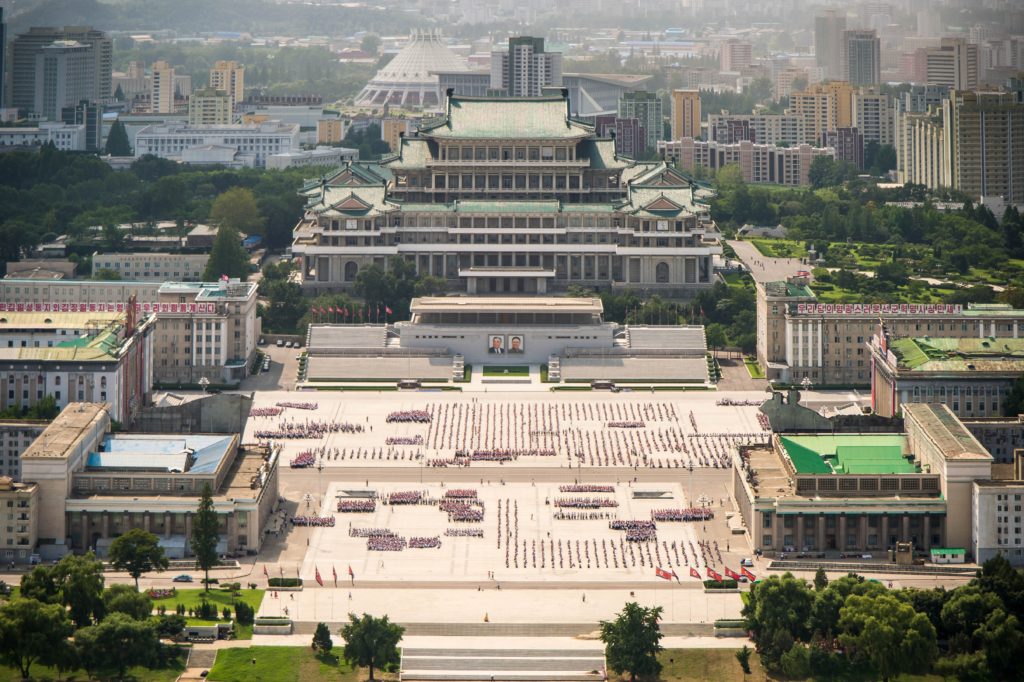The Peninsula
Why North Korean Silence on the Trump-Kim Summit?

By Troy Stangarone
Since President Donald Trump accepted Kim Jong-un’s invitation to meet, North Korea has gone conspicuously silent. While North Korea has suggested that a potential thaw in relations is thanks to its own efforts rather than sanctions and a Chinese news report stated that Kim Jong-un told Chinese President Xi Jinping that he is willing to meet with Trump, North Korea has remained silent on the invitation and the decision to have a summit meeting. This has led to speculation about North Korea’s true intent.
After the failures of the Agreed Framework, the Six Party Talks, and the misunderstandings of the Leap Day Agreement, it is not unreasonable to be concerned that North Korea has no real intention of denuclearizing. North Korea’s failure to publically state as much or that Kim Jong-un has agreed to meet with Trump only adds to suspicion.
This has led to speculation that North Korea may have been caught off-guard by President Trump’s decision to quickly accept the invitation, or that it is still analyzing the intentions of other countries to calculate its next move. It has also been suggested that North Korea is still considering how to convince North Koreans that giving up nuclear weapons is a good thing after years of propaganda to the contrary or that the move is just an attempt by North Korea to ward off a potential attack by the United States. All of these could be the reason, or it could be some combination of them.
Of course, there could be perfectly understandable reasons for North Korea’s relative silence on the Trump-Kim summit. A summit meeting is a high risk endeavor for North Korea. While a meeting between Kim and Trump would legitimize the regime and serve as a propaganda coup domestically, especially if the meeting took place in Pyongyang, there is little upside to the regime announcing the summit. Trump is a mercurial leader who could change his mind at the last minute. If North Korea were to announce a summit and Trump were to later decline despite North Korea agreeing to not conduct tests and refrain from criticizing U.S.-South Korea military exercises it would be a significant loss of prestige domestically for the regime.
There is a similar downside for the regime in making public announcements on a commitment to denuclearize. After promoting the nuclear program as a “treasured sword” and part of the byungjin policy, North Korea is in no position to publically announce its intent to denuclearize when it has no assurances of what benefits this policy would bring to the regime. Publically committing to denuclearization, even with caveats, could be seen domestically as tantamount to giving up the nuclear program for nothing in return.
At the same time, with reports that the CIA is taking the lead on planning the summit with North Korea’s Reconnaissance General Bureau, it is not surprising that there have been few public discussions of the summit. With each countries’ respective intelligence agencies handling the planning we should expect details to be kept more closely than if the State Department were running the lead in the United States.
North Korea’s silence is most likely a reflection of these and other concerns, but in the end the most significant factor may be that there is just little upside for the regime to make public announcements until there is more certainty about a summit or what benefits it might receive from denuclearization.
Troy Stangarone is the Senior Director for Congressional Affairs and Trade at the Korea Economic Institute of America. The views expressed here are the author’s alone.
Photo from Tom Frohnhofer’s photostream on flickr Creative Commons.
